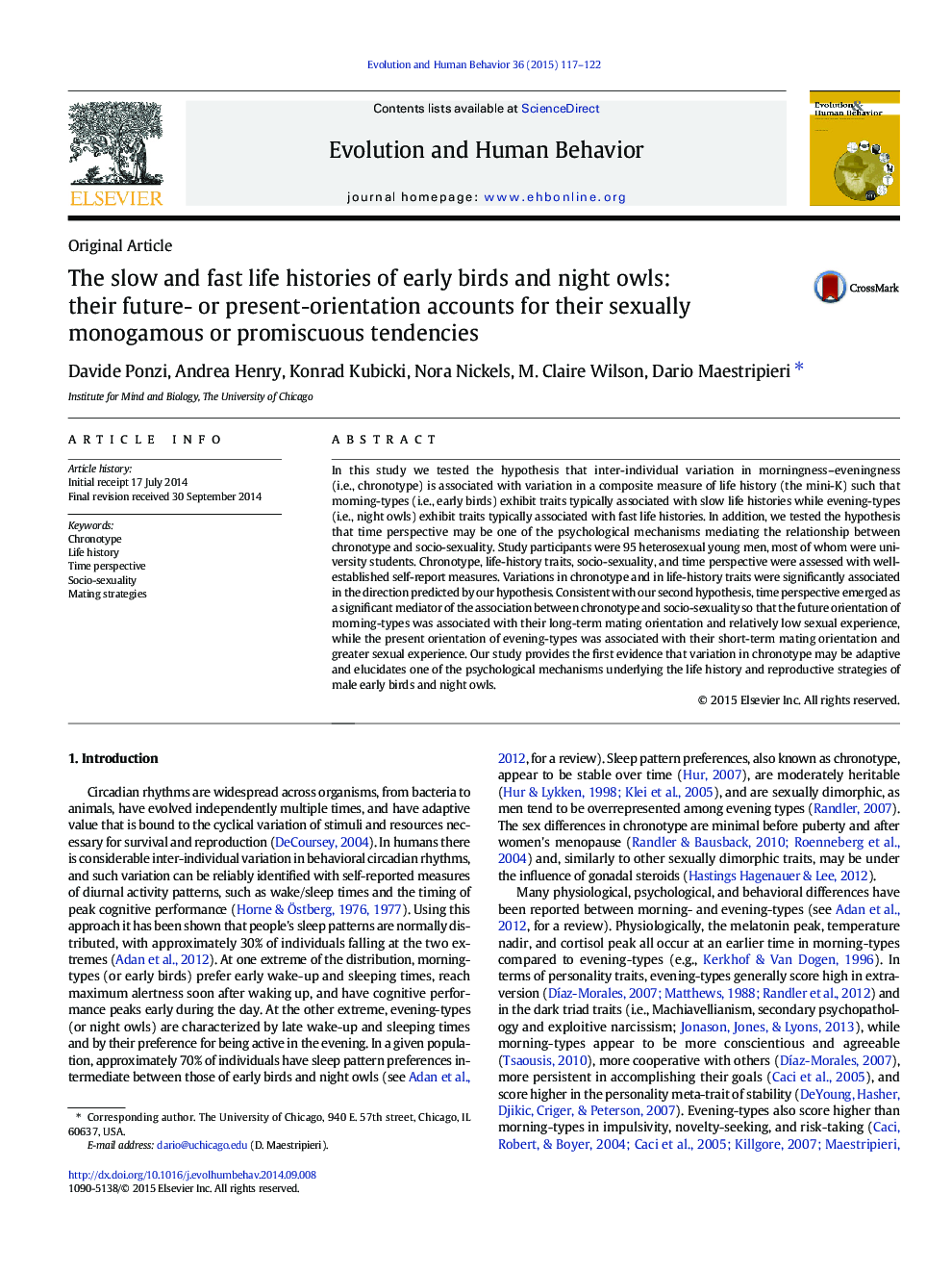| Article ID | Journal | Published Year | Pages | File Type |
|---|---|---|---|---|
| 10463992 | Evolution and Human Behavior | 2015 | 6 Pages |
Abstract
In this study we tested the hypothesis that inter-individual variation in morningness-eveningness (i.e., chronotype) is associated with variation in a composite measure of life history (the mini-K) such that morning-types (i.e., early birds) exhibit traits typically associated with slow life histories while evening-types (i.e., night owls) exhibit traits typically associated with fast life histories. In addition, we tested the hypothesis that time perspective may be one of the psychological mechanisms mediating the relationship between chronotype and socio-sexuality. Study participants were 95 heterosexual young men, most of whom were university students. Chronotype, life-history traits, socio-sexuality, and time perspective were assessed with well-established self-report measures. Variations in chronotype and in life-history traits were significantly associated in the direction predicted by our hypothesis. Consistent with our second hypothesis, time perspective emerged as a significant mediator of the association between chronotype and socio-sexuality so that the future orientation of morning-types was associated with their long-term mating orientation and relatively low sexual experience, while the present orientation of evening-types was associated with their short-term mating orientation and greater sexual experience. Our study provides the first evidence that variation in chronotype may be adaptive and elucidates one of the psychological mechanisms underlying the life history and reproductive strategies of male early birds and night owls.
Related Topics
Life Sciences
Agricultural and Biological Sciences
Ecology, Evolution, Behavior and Systematics
Authors
Davide Ponzi, Andrea Henry, Konrad Kubicki, Nora Nickels, M. Claire Wilson, Dario Maestripieri,
